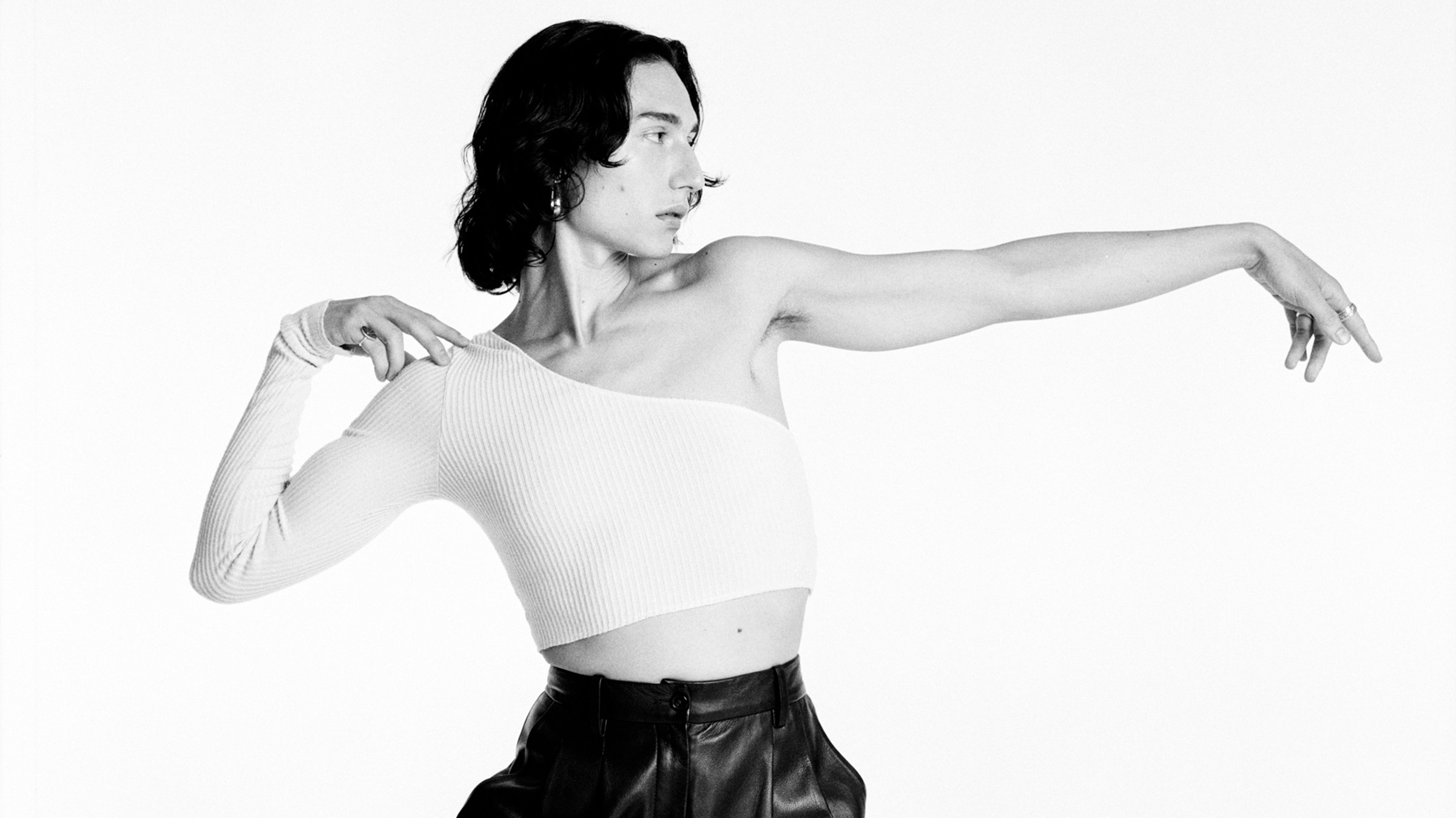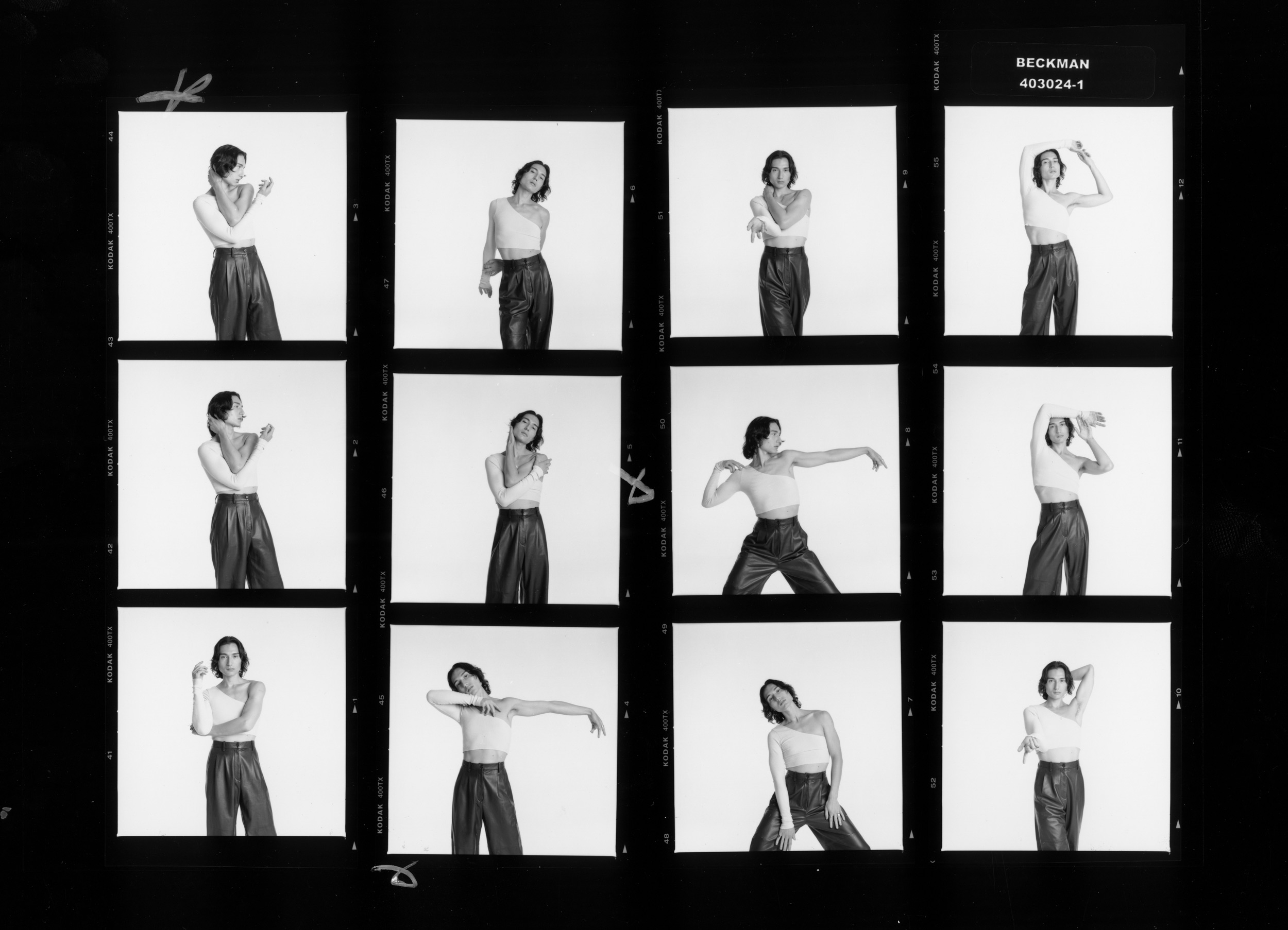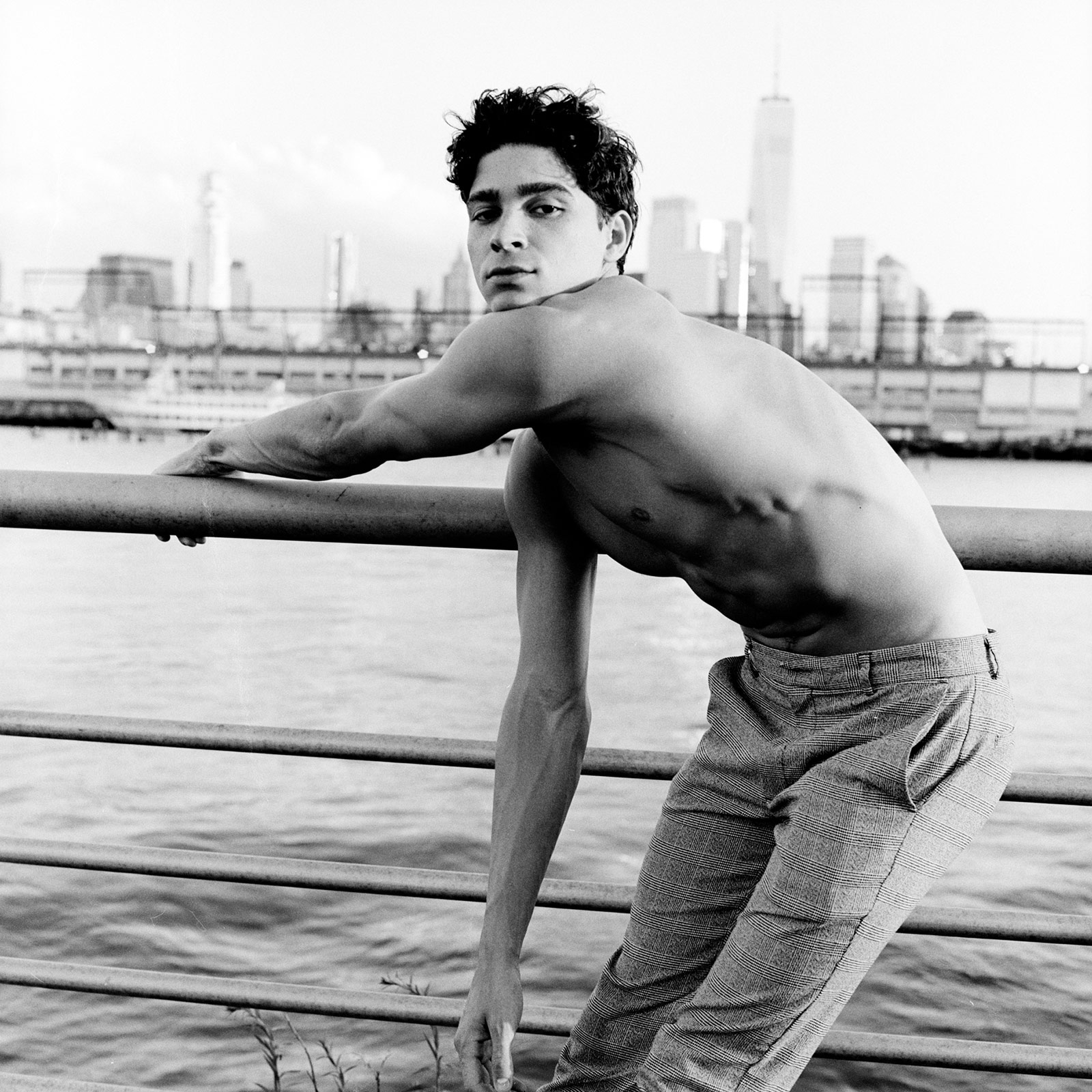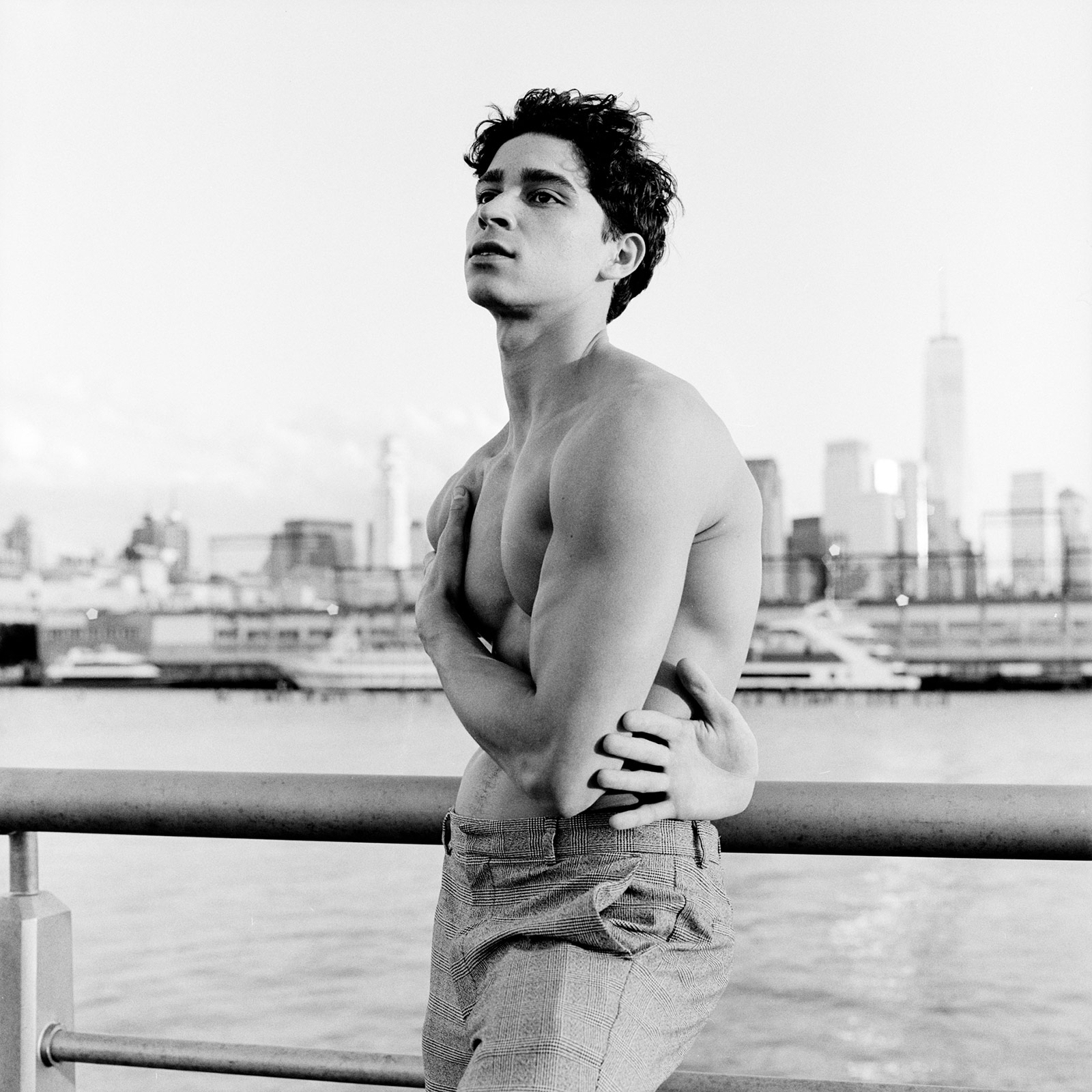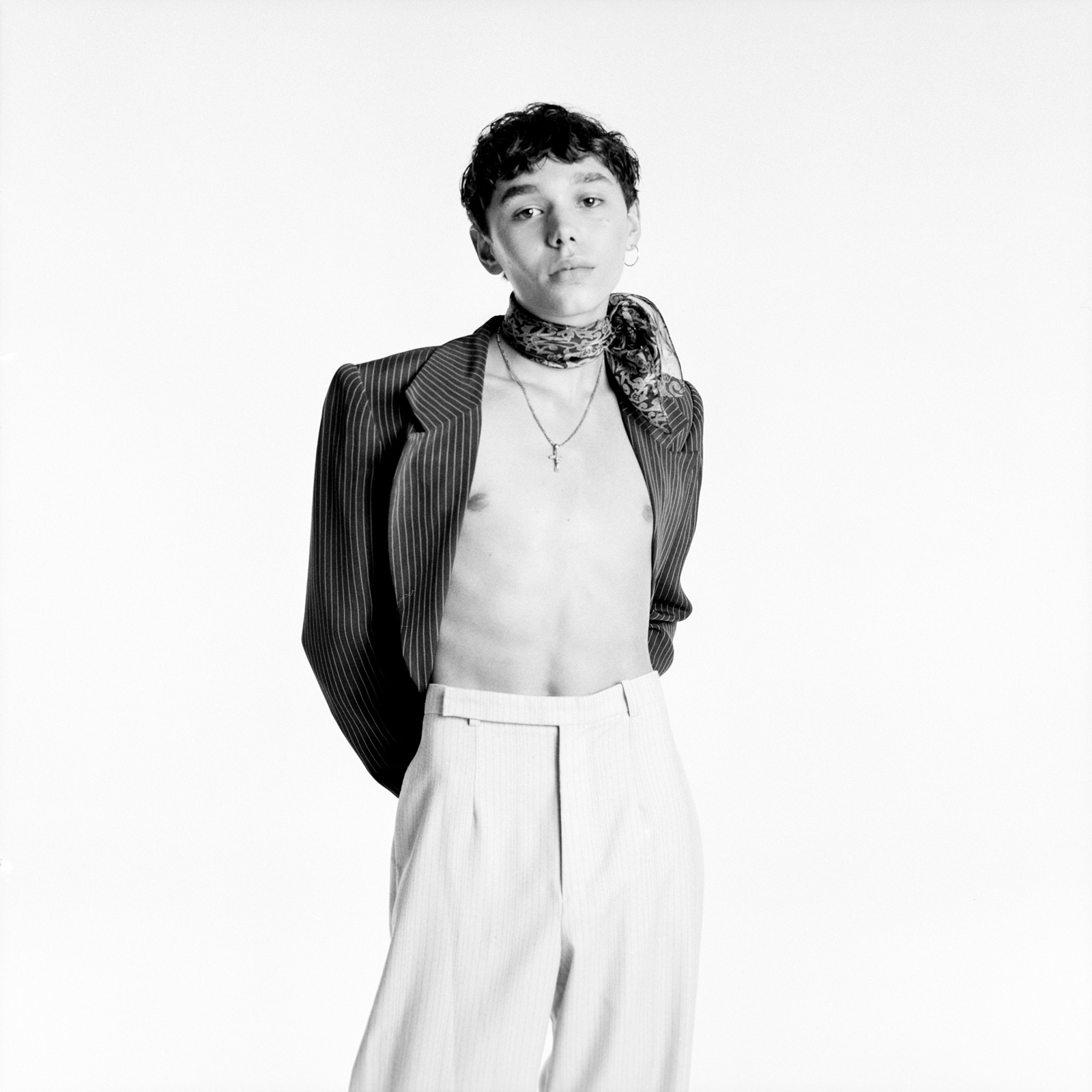Janette Beckman photographed New Pandemics Spring/Summer 2019 show package, revealed exclusively on Document Online.
“Dylan, whenever you’re ready,” called out Janette Beckman—the photographer who immortalized The Clash, Debbie Harry, The Beastie Boys, Salt ‘N Pepa, Keith Haring, and more, as well as youth culture in the United Kingdom and New York—at Pier59 Studios last month. Dylan, dressed in a sequined romper and yellow choker, immediately got up to pose for Beckman, who stood before him on her knees, armed with camera, while images from the 1980s that included Jean-Paul Goude’s iconic Island Life album cover of Grace Jones, voguers posing and Whitney Houston’s 1987 cover for her album Whitney hung on the mood board nearby.
Dylan, who was being shot for the New Pandemics Spring/Summer 2019 show package, is one of the LGBTQ models represented by New Pandemics, which according to its website, is “a casting and management agency dedicated to increasing LGBTQ+ visibility.” Pandemic is defined an outbreak of a pandemic disease, and it’s probably the reason why its founder, casting director Cody Chandler named it the New Pandemics when he launched the agency last spring. Document quizzed Chandler about his reasons for starting New Pandemics, the challenges of being LGBTQ+ in the modeling world, and what companies have been fast to support it.
Ann Binlot—You worked as a casting agent for years. Why did you think that there was a need for New Pandemics?
Cody Chandler—Several situations formed the basis for New Pandemics. First and foremost, I realized there was a need for a mediator in the casting and management space. That takes many forms, from ensuring clients list the models’ preferred pronouns on the call sheet, to simply realizing that there’s been a whole pool of talent overlooked and underrepresented by agencies. The whole issue started with the notion of ‘mass appeal’ in marketing models. Within the fashion industry this has lead to many agents suppressing models and deterring them from being transparent about their orientation-all to pacify a broad range of clients for a quick buck. Who says a Queer non-binary model in a Calvin Klein ad can’t be a suburban girl’s teen dream?
Binlot—How has the business been going since you started last spring? How has the industry been responding?
Chandler—We actually only launched the agency in May of this year—we’ve been out in the world for nearly five months. It’s been an interesting journey to say the least and the response has been for the most part overwhelmingly positive. I think for the Queer community itself there was this feeling of…finally, at least that was the general tone of the emails we received. Dazed [& Confused] immediately offered their support, with W and Models.com following shortly after. The influx of projects has been steady and I’m really grateful to the brands and publications who jumped on board from day one.
Binlot—Where have you been finding your models? Were they signed to conventional agencies? Or do you focus on street casting?
Chandler—It’s really a mix—some were scouted on the street, Instagram, friends that were suggested, et cetera. Surprisingly, Queer talent seeking representation have found us in overwhelming numbers—and between Instagram and e-mail we’ve received just shy of 2,000 submissions.
Binlot—What kind of labels have casted your models?
Chandler—Levi’s, Marc Jacobs, Calvin Klein, Converse, Opening Ceremony, Noah Clothing, and more—also there are a few forthcoming projects in the streetwear space..
Binlot—Are your models getting cast more in editorials, or commercial shoots?
Chandler—Good question. We’ve had a large influx of editorial inquiries, but we’re being extremely selective on that end. Commercial clients have been on board from the beginning and it’s important to have a balance of both. The goal is to support the talent signed to New Pandemics and allow them to reinvest in their individual pursuits—while also doing high quality work that’s creatively fulfilling.
Binlot—If a model runs into an issue regarding their sexual orientation on the shoot or in the industry, how do you address the situation?
Chandler—We mostly address it by being proactive to prevent a situation from arising in the first place. With the agency as a mediator, that’s where I hope the models feel empowered and supported in the event that such a situation does occur. It may come down to educating the client through having difficult conversations and opening that discourse, I feel it really does serve the industry and the community to prevent future similar occurrences. Overall the agency takes the pressure off of the model should they feel uncomfortable advocating for themselves.
Binlot—Why did you choose Janette Beckman for this season’s show package?
Chandler—Ian Crane who came on as co-creative director this time around originally suggested Janette. When we were going through the many names of photographers we felt were in alignment with New Pandemics, the spirit of Janette’s work resonated immediately. Janette has a strong foundation in documentary photography, and we knew her approach would be more stripped down and about the subject. From her iconic images of New York artists like Keith Haring, to punk and hip-hop icons, her work speaks for itself and feels effortlessly engaging.
Binlot—What are the biggest challenges you’ve come across so far?
Chandler—Most of them have been idealogical. There’s the challenge in preserving Queer Identity and culture and resisting the urge to completely assimilate. The other challenge surprisingly is to reach Queer creatives including photographers and designers who have grown comfortable in their positions and feel the fight for LGBT+ Liberation is over. I don’t want to sound like a Pentecostal preacher on Sunday, but the truth is just roughly 50 years ago it was illegal for us gays to congregate in bars in New York, less than 30 years ago we were at the peak of the AIDS crisis—and now with the current conservative political climate we have the threat of religious freedom bills and changes in the Affordable Care Act or Medicaid, which would disproportionately affect those in the community living with HIV and AIDS. It’s not in the spirit of projecting a tone of heaviness, but it’s a simple reminder that so many Queer people sacrificed their comfort, stability, and lives to get us where we are now. Denying that and not doing our part as creatives in the digital age to uplift the community seems unfathomable.
Binlot—What’s next after fashion week?
Chandler—The 2018 midterm elections [on November 6], please go vote.


